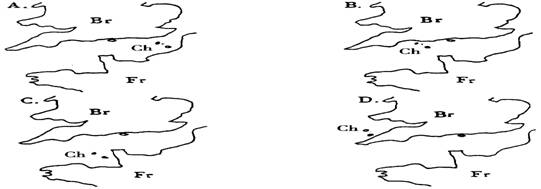题目内容
Are the British people Europeans?This may seem a strange question to Africans and Asians,who tend to think of all white men as Europeans. But the British,when they are in Britain,do not regard themselves as Europeans. The Europeans,to them,are those rather excitable foreigners from the other side of English Channel,who have never learnt how to speak English. Europe is “the Continent”:a place full of interests for English tourists,but also the source of almost all the wars in which Britain has ever been involved. Thus,although geographically speaking Britain is a part of Europe,yet the fact that it is a separate island has made its people feel very,very insular(孤立的). They feel,in many ways,different from the rest of Europe,and they sometimes annoy continental nations by failing to support them,or even to understand them,in time of need.
Where did the British people come from?This is quite interesting question,since they are a mixture of many different races(种族),and all these races invaded(入侵)Britain at various times from Europe. Nobody knows very much about
51. The purpose of the passage is to .
A. talk about Europeans
B. discuss the origin of British people
C. argue for the superiority of British people
D. compare the Europeans with Africans and Asians
52. It can be known from the passage that .
A. all the people think white people are Europeans
B. there are many Africans and Asians living in Europe
C. white men are Europeans in the eyes of Africans and Asians
D. the British people think of themselves as Europeans
53. It can be inferred from the passage that .
A. Europeans are those who are unable to speak English
B. those who invaded
C.
D.
54. Why do the Britain people feel insular?
A. Because they are different from those people in the Continent
B. Because they sometimes fail to support the continent countries in time of need
C. Because they are separated geographically from the Continent
D. Because they are considered different to understand
55. Which of the following is most likely to be discussed after this passage?
A. The Germanic tribes which invaded
B. The civilization the Romans brought to
C. The Romans who did not settle in
D. The survival of the British people in the first century B. C.



